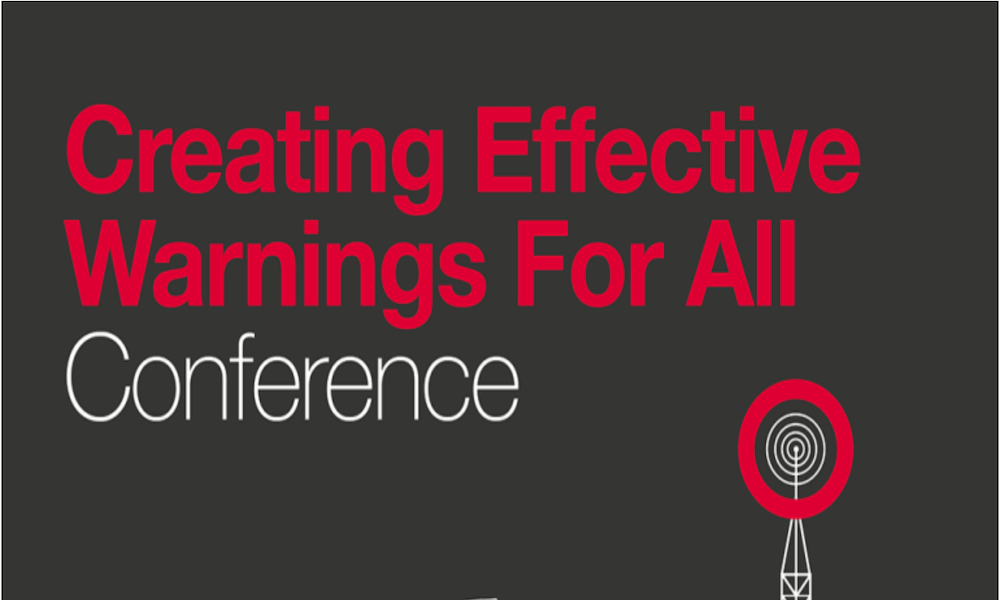By Lorenzo Marchetti, Public Affairs Manager at Everbridge
Ilan Kelman, Professor of Disasters and Health, University College London and University of Agder
Carina Fearnley, Director, UCL Warning Research Centre, Professor in Warnings and Science Communication, Dept. of Science and Technology Studies, University College London
The following article highlights the importance of collaborating for safety and the vital role of recent events like UCL’s: ‘Creating Effective Warnings for All’ conference
In an era marked by ever-increasing global challenges, the need for effective early warning systems has never been more critical. Natural hazards, public health emergencies, and other crises can strike at any moment, putting lives and livelihoods at risk. The Early Warnings for All Initiative, driven by the United Nations, recognizes this imperative and seeks to unite all stakeholders in building a safer world. One such initiative, the “Creating Effective Warnings for All” event hosted by UCL Warning Center in September of 2023, stands as a testament to the power of collaboration between different stakeholders and the private sector’s pivotal role in safeguarding communities worldwide.
At its core, the Early Warnings for All Initiative embodies the spirit of unity and cooperation. It recognizes that no single entity, whether it be governments, international organizations, NGOs, or the private sector, can adequately address the complex web of challenges presented by our interconnected world. Events like “Creating Effective Warnings for All” provide a platform where diverse stakeholders can come together to share knowledge, best practices, and innovative solutions—especially for acting on the extensive experience we already have. This inclusivity ensures that the resulting warning systems are comprehensive, effective, and capable of reaching every corner of our global society.
The “Creating Effective Warnings for All” event not only showcased the various stakeholders’ commitment to safety but also served as a catalyst for innovative dialogue. By bringing together leaders from various fields and presenting opportunities to interact and participate, this event fostered collaboration that can lead to groundbreaking advancements in early warning methodology. These innovations have the power to save lives, reduce economic losses, and enhance our collective resilience in the face of adversity. Yet, they help move towards an integrated warning system where stakeholders have to work outside and between the various silos in place.
The private sector’s involvement in these initiatives is of paramount importance. As a source of cutting-edge technology, resources, and expertise, private companies play a crucial role in advancing early warning systems. Their contributions in areas such as data analytics, communication infrastructure, and software development have the potential to revolutionize the way we deliver warnings to those in harm’s way. Furthermore, the private sector’s agility and entrepreneurial spirit enable rapid adaptation to emerging threats, making them indispensable partners in the pursuit of comprehensive and responsive early warning systems.
As we navigate an increasingly complex and uncertain world, events like “Creating Effective Warnings for All” remind us that our shared safety depends on collaboration, innovation, and the active participation of all stakeholders, including the private sector. By working together, we can create, test, implement, and refine early warning systems that leave no one behind, ensuring that timely and accurate information reaches even the most vulnerable among us, while we all have the knowledge, resources, and interest to save the lives of ourselves and others.
This is the essence: warning systems start with and are about people. They cannot be added on at the end, as the last step or the last mile, without prior involvement and full engagement. People using warnings, which means all of us, are the starting point—the first mile of what it means to have an early warning system.
The importance of events like UCL’s “Creating Effective Warnings for All” cannot be overstated. They serve as a beacon of hope in our quest to build a safer world for all, despite the mounting challenges. Through collaboration and the active involvement of the private sector, we can transform early warning systems into powerful tools that protect lives and foster resilience in the face of adversity. This is not just an aspiration; it’s a collective responsibility that we must embrace with unwavering determination.
